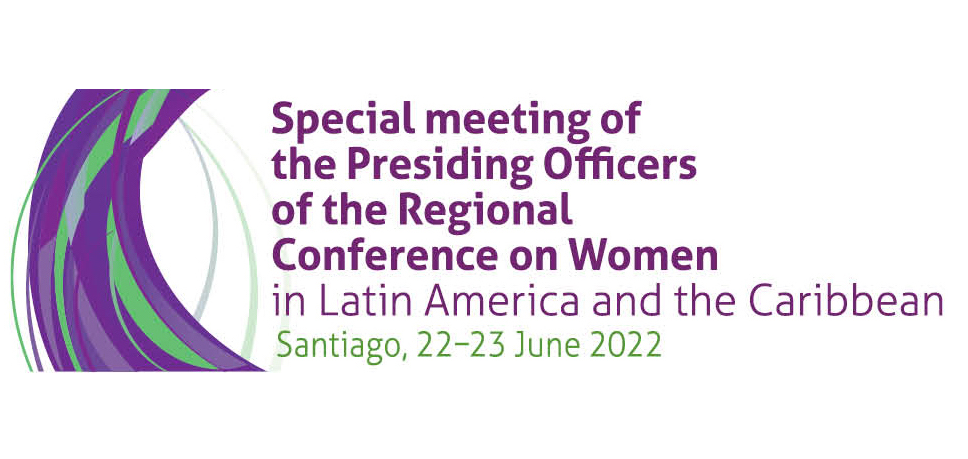Activities
Upcoming activities
-
29 - 30 April 2025 | Event | Commitees

Twenty-fourth meeting of the Executive Committee of the Statistical Conference of the Americas of ECLAC
The twenty-fourth meeting of the Executive Committee of the Statistical Conference of the Americas will be held virtually from 29 to 30 April 2025....
-
15 May 2025, 09:00 - 12:00 | Event | Meetings and technical symposiums

Accelerator Session at the World Circular Economy Forum 2025
The event "Measuring Progress and Promoting Circular Economy Indicators in Latin America and the Caribbean" is organized by ECLAC, UNOSD, UN-DESA and ...
-
24 June 2025, 16:30 - 18:00 | Event | Meetings and technical symposiums

Side Event Presentation of the document "Education and the development of digital competences in Latin America and the Caribbean"
The objective of the event is to deepen the debate on effective strategies to reinforce the school-to-work transition of future generations in order t...
-
ECLAC: Montevideo Strategy Seeks to Untie the Structural Knots of Gender Inequality in the Region
17 March 2017 | News“The Montevideo Strategy is an ambitious political and technical instrument that seeks to untie the structural knots of gender inequality in Latin America and the Caribbean,” said María Nieves Rico, Director of the Gender Affairs Division of the Economic Commission for Latin America and the Caribbean (ECLAC), at a side event to the 61st session of the Commission on the Status of Women (CSW61) that is taking place in New York. The Montevideo Strategy for Implementation of the Regional Gender Agenda within the Sustainable Development Framework by 2030, which sets 10 pillars for implementation, w…
-
Economic survey of Puerto Rico, 1996
25 September 1997 | Publication -
ECLAC Notes Nº 91
15 March 2017 | ECLAC Notes -
Income distribution and wealth: new conceptual and methodological approaches. Summary
14 March 2023 | PublicationThis study analyses how value from labour (intellectual and manual) and natural resources (which also provide value) is created (gross national product), allocated (national income), distributed (disposable income), used (expenses and savings) and accumulated (wealth) in society. Instead of measuring subjective welfare inequality (happiness) through consumption, this study analyses how the value created by labour and natural resources is distributed. The purpose is to study inequality in the distribution of the value created in the economy. Although capabilities and freedom are essential, this…
-
Joan Clos: “Urbanización es instrumento para el desarrollo y la productividad de los países”
20 June 2016 | Press ReleaseUrbanization is an instrument for the development and productivity of countries, which should implement national strategies to provide a decent life to their citizens, said Joan Clos, Executive Director of the United Nations Human Settlements Programme (UN-Habitat), during a keynote lecture at the headquarters of the Economic Commission for Latin America and the Caribbean (ECLAC) in Santiago, Chile. The most senior representative of UN-Habitat was welcomed by Alicia Bárcena, the Executive Secretary of the United Nations regional organization, and gave a presentation entitled “Habitat III…
-
Latin America and the Caribbean: looking ahead after the Millennium Development Goals: Regional monitoring report on the Millennium Development Goals in Latin America and the Caribbean, 2015
1 September 2015 | PublicationThe 15-year time frame originally set for meeting the Millennium Development Goals has come to an end. It is time to take stock of the progress made on the Goals deriving from the United Nations Millennium Summit in 2000. The eight Goals set out to encapsulate the commitments undertaken at the major development conferences and summits held during what came to be known as the “decade of policy-setting”, the 1990s. In September 2015, heads of State and Government will formally adopt the 2030 Agenda for Sustainable Development, which sets forth the 17 Sustainable Development Goals together with c…
-
United Nations Secretary-General Appoints Mario Cimoli as Acting Executive Secretary of ECLAC
About the office ECLAC-Buenos Aires
Located in Buenos Aires, the ECLAC office in Argentina was created in December 1973 by virtue of a cooperation agreement between the Office of the Executive Secretary of ECLAC and the Government of Argentina. The new office started work in 1974. In March 2002, senior cabinet members of the Office of the President of Argentina and the Deputy Executive Secretary of ECLAC signed a new Cooperation Agreement between the Commission and the Government of Argentina. Over the past 40 years, the ECLAC office has devoted constant efforts to the study of the Argentine economy. It serves a dual function: f…
Report on the activities of the working groups
About Financing for development
The mission of ECLAC in the area of financing for development is entrusted to its Economic Development Division and consists in promoting the effective generation and efficient allocation of financial resources to support development and equality in Latin America and the Caribbean. Objectives: To enhance the capacities of makers and practitioners of financial policy in Latin America and the Caribbean to generate and allocate domestic and foreign resources for inclusive economic and social development. To build the capacities of policymakers and other relevant stakeholders in Latin America and …
World Telecommunication and Information Society Day
I welcome the focus on road safety for this year's World Telecommunication and Information Society Day. Road accidents kill nearly 1.3 million people every year. They leave millions more injured or permanently disabled, placing a heavy economic burden on families and countries. The United Nations Decade of Action for Road Safety from 2011 to 2020 is dedicated to helping to make roads and vehicles safer worldwide. Information and communication technologies provide many options. Intelligent Transport Systems and navigation devices can help reduce congestion. Radars can help to p…
Colombia holds the "Principle 10 Forum: An intersectoral dialogue"
On 18 March, the Ministry of the Environment and Sustainable Development of Colombia organized the "Principle 10 Forum: An intersectoral dialogue" with the support of the Ministry of Foreign Affairs. At the event, it presented the developments of the process on the implementation of Principle 10 of the Rio Declaration in Latin America and the Caribbean at the national level to the environmental sector and civil society.…
Children and HIV/AIDS in Latin America and the Caribbean
In Latin America, around 36,000 children under 15 have HIV, and in the Caribbean estimates are of 11,000 children living with the virus. Although some progress has been made in the region in the care and treatment of adults that is not the case with children. This issue number 7 of Challenges is devoted to the latest information on the vertical transmission (mother-to-child) of HIV in Latin America and the Caribbean, and how children are accessing life-saving treatment in the region.…
ECLAC presents model institutional framework for Sustainable Development Goals implementation in the Caribbean
On 18 May 2017, the Economic Commission for Latin America and the Caribbean (ECLAC) subregional headquarters for the Caribbean convened a workshop in Port of Spain, Trinidad and Tobago, to provide policy makers with practical options for establishing and enhancing their national institutional framework for implementation of the Sustainable Development Goals (SDGs). The workshop brought together senior government officials from the Caribbean in the areas of foreign affairs, the economy, the environment, sustainable development and planning, as well as officials of the United Nations system, re…
Building SME competitiveness in the European Union and Latin America and the Caribbean: policy proposals by the private sector
SMEs as economic agents are being called upon to play a new and important role in boosting relations between Latin America and the Caribbean and the European Union (see box 2). These two regions are closely linked from the economic viewpoint, in particular through trade and direct investment as well as through the long-standing exchange of people and ideas. Today, the growth of Latin America and the Caribbean can be a factor for mitigating the impact of the crisis in Europe. The internationalization of SMEs, beyond helping to generate employment and increase incomes, offers the possibility of …
ECLAC Notes Nº 105
The situation of transport in the landlocked countries of South America
Climate Change Threatens the Basis of Food Security in Latin America and the Caribbean: Agriculture
The impact of climate change in Latin America and the Caribbean will be considerable because of its economic dependence on agriculture, the low adaptive capacity of its population and the geographical location of some of its countries, notes a new study by FAO, ECLAC and ALADI. The study was presented today at the meeting of the Community of Latin American and Caribbean States (CELAC), in Santiago de los Caballeros, Dominican Republic, as a key input to incorporate climate change management in the Plan for Food Security, Nutrition and Hunger eradication of CELAC 2025. According to the three ag…
Financing of education and technical and vocational education and training (TVET) in Latin America and the Caribbean
A key pre-requisite for achieving the Sustainable Development Goals is accessible and inclusive quality education (SDG 4). Research has shown that investments in human capital —by the public sector, by firms and by households— have a significant impact on economic performance as well as individual and social wellbeing. The role of technical and vocation education and training (TVET) in this process is key, especially as the global and regional economy undergoes significant changes. The world of work is evolving rapidly, as productive structures adapt to the shifts induced by the emergence of n…

